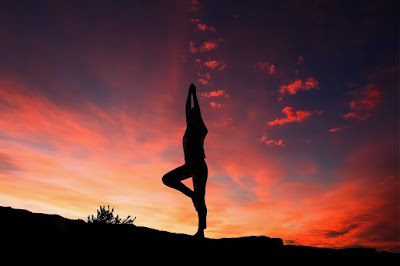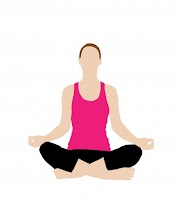The mystery of who founded yoga
Yoga is fast becoming one of the world's most popular forms of exercise and relaxation. It combines the disciplined that is required of martial arts with the health benefits of aerobic exercise - and it's also incredibly relaxing. this interested in the origins of this form of exercise may wonder who exactly is the founder of yoga and where did it originate.
The answer is complex. Despite many historians delving into the origins of yoga we still have no clear idea of the early genesis of the discipline - but what we do know is fascinating.
That civilization was destroyed by invaders from the Northwest of the country who styled themselves as Aryans and for a long tome it was thought that Yoga was a creation of the mingling of those two cultures. But modern historical study has shown this not to be the case.
In fact modern historians now believe that this invasion never even took place and that the origins of yoga predate even this fiction.
After careful study of the various languages found inscribed on different mediums that the Aryans had actually been in what we now describe as modern India for hundreds of years - they were not invaders, but part and parcel of the Indian culture and population.
This is where the ancient art of yoga had its foundation. Thousands of years ago those in India began to realise that the exercises that make up the most part of yoga had beneficial health effects and the practice began to spread across the entire country.
With the occupation of India by Britain the practice of yoga cam to the attention of the West and it was not long before both the exercises and the mental attitude that is part of the proper part of the practice of yoga came to the attention of consumers across the globe.
Today the various practices such as Vedic Yoga have captured the imagination of practitioners across the globe. For many people the practice of yoga conjures up images of stretching exercises - however that is only the tip of the iceberg as far as yoga is concerned. There are depths of philosophy that can be explored by those who wish to know more about the practice of yoga.
Perhaps one of the most influential texts and philosophy's of yoga is the so called 'Bhagavad-Gîtâ' of which Mahatma Gandhi was a follower. It speaks about the unity of all living things.
The answer to the question of who founded yoga is one that is unlikely to be be answered anytime soon. This is a discipline that has evolved over centuries and it is up to the individual to learn and grow at their own pace while following what is not a discipline - but rather a philosophy.
The answer is complex. Despite many historians delving into the origins of yoga we still have no clear idea of the early genesis of the discipline - but what we do know is fascinating.
Who founded Yoga?
It's difficult to say. But what we do know is that the practice began around 5,000 years ago. until very recently it was thought that yoga began when the founder of Buddhism, Gautama was rising to the attention of the populace of what has now been recognised as the Indus Civilisation.That civilization was destroyed by invaders from the Northwest of the country who styled themselves as Aryans and for a long tome it was thought that Yoga was a creation of the mingling of those two cultures. But modern historical study has shown this not to be the case.
In fact modern historians now believe that this invasion never even took place and that the origins of yoga predate even this fiction.
After careful study of the various languages found inscribed on different mediums that the Aryans had actually been in what we now describe as modern India for hundreds of years - they were not invaders, but part and parcel of the Indian culture and population.
This is where the ancient art of yoga had its foundation. Thousands of years ago those in India began to realise that the exercises that make up the most part of yoga had beneficial health effects and the practice began to spread across the entire country.
With the occupation of India by Britain the practice of yoga cam to the attention of the West and it was not long before both the exercises and the mental attitude that is part of the proper part of the practice of yoga came to the attention of consumers across the globe.
Today the various practices such as Vedic Yoga have captured the imagination of practitioners across the globe. For many people the practice of yoga conjures up images of stretching exercises - however that is only the tip of the iceberg as far as yoga is concerned. There are depths of philosophy that can be explored by those who wish to know more about the practice of yoga.
Perhaps one of the most influential texts and philosophy's of yoga is the so called 'Bhagavad-Gîtâ' of which Mahatma Gandhi was a follower. It speaks about the unity of all living things.
The answer to the question of who founded yoga is one that is unlikely to be be answered anytime soon. This is a discipline that has evolved over centuries and it is up to the individual to learn and grow at their own pace while following what is not a discipline - but rather a philosophy.







0 Comments